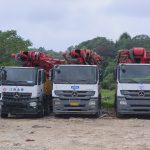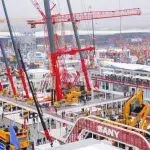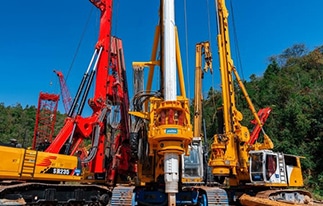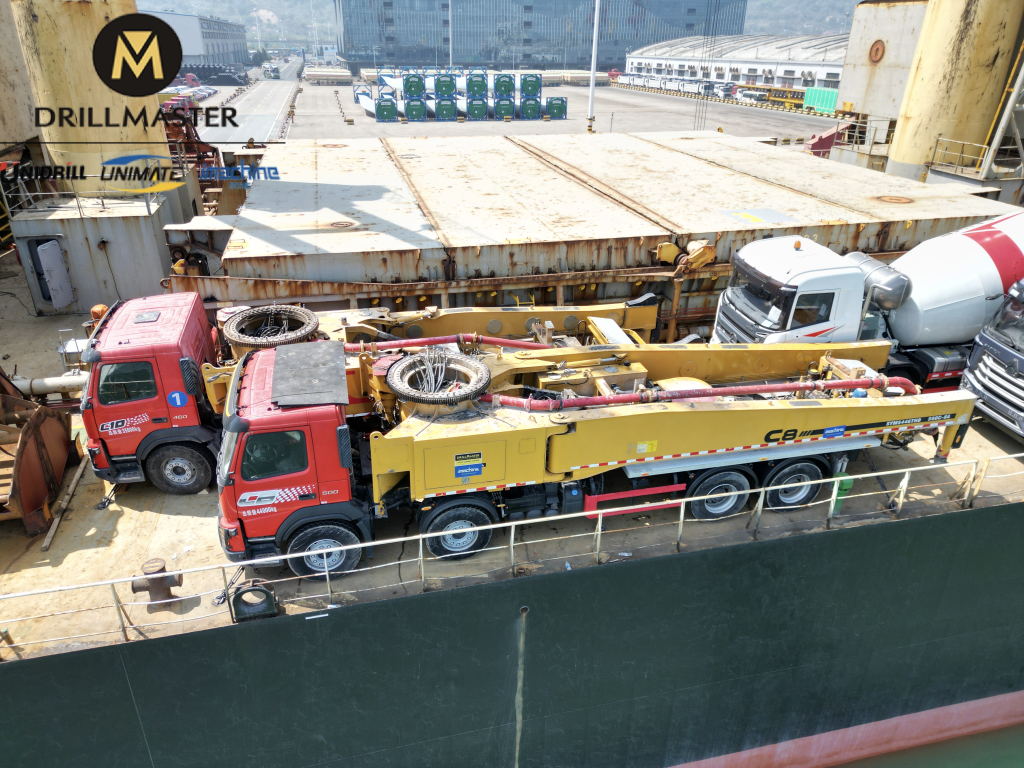
China Customs used construction equipment export requirements are becoming stricter than ever, and both overseas buyers and Chinese exporters need to adapt.
According to our recent export declarations, China Customs now requires the engine number, chassis number, and serial number in all machine documentation. If exporters omit these details, customs delays shipments until they provide supplementary proof. When details mismatch or goods differ from declarations, authorities may impose fines or return shipments.
This increasing scrutiny demonstrates that the Chinese government and China Customs now take greater regulatory action in the used construction equipment export market. It is a sector where critics have long condemned its lack of oversight.
Why China Customs Is Tightening Control on Used Construction Equipment Exports
Unlike the new equipment market, where brands, distributors, and service providers operate under established standards, China’s second-hand machinery market has been far less regulated. Although the government has aimed to improve oversight, enforcement has lagged, until recently.
China Customs used construction equipment export inspections are now part of this broader effort to curb fraud, improve product traceability, and protect buyers from mismatched or misrepresented machines. Customs officers now demand key identifiers like engine and chassis numbers to quickly verify that the machine matches the documents.
Article: common traps in the used construction machinery market
Common Triggers for Stricter Customs Checks
- Incomplete Documentation: Missing engine number, chassis number, or serial number.
- Mismatched Goods: The physical machine does not match the declared details.
- Suspicious Sellers: Exporters flagged for previous irregularities.
For example, if a container is declared as containing a 2018 excavator, but customs inspection reveals the machine is a 2012 model with altered serial numbers, the shipment can be seized.
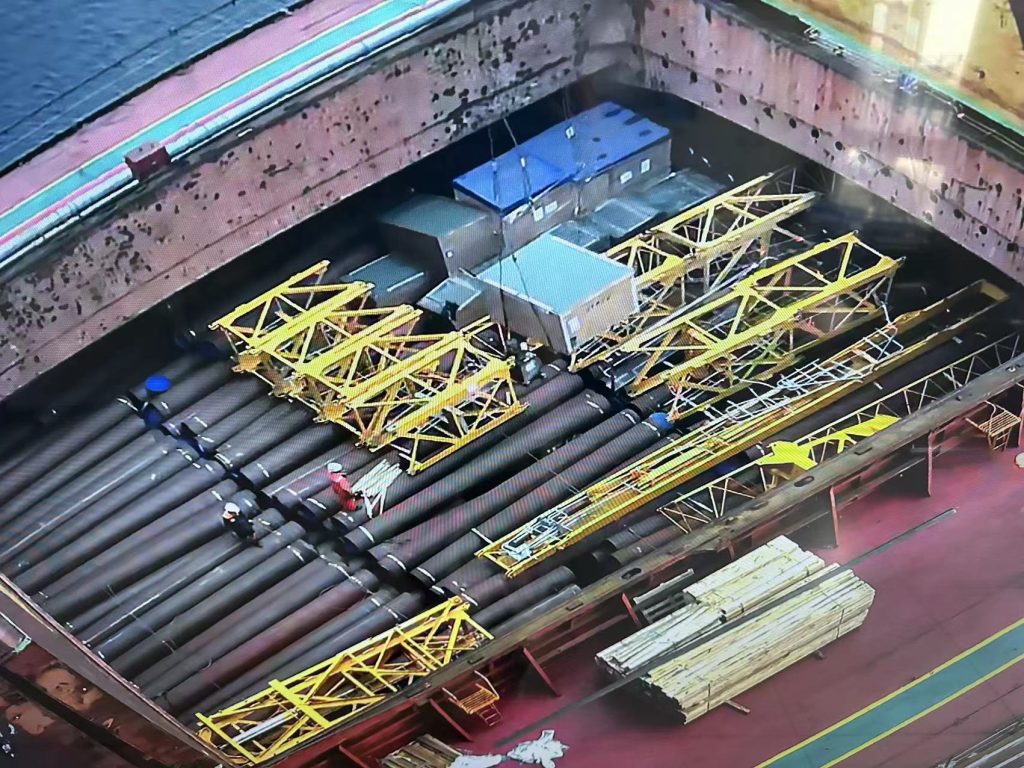
What This Means for Overseas Buyers
From a buyer’s perspective, China Customs clearance for used machinery has become a critical step in ensuring equipment authenticity. While some may view the stricter process as an inconvenience, it works in favor of responsible buyers, especially those who have previously fallen victim to bait-and-switch tactics or misrepresented stock.
By the time your shipment leaves China, the customs clearance process has already acted as an initial filter against fraudulent exports.
How to Prepare for China Customs Clearance for Used Construction Equipment
1. Collect All Machine Identification Numbers
Ask your supplier to provide the engine number, chassis number, and serial number before shipping. Verify that these match the documents.
2. Work With Exporters Who Understand Customs Requirements
Not all sellers are experienced in China used construction equipment export requirements. Choose suppliers with a proven record of smooth customs clearance.
3. Avoid Sellers Who Hesitate to Provide Documentation
If a seller cannot or will not provide engine and chassis numbers upfront, treat this as a red flag.
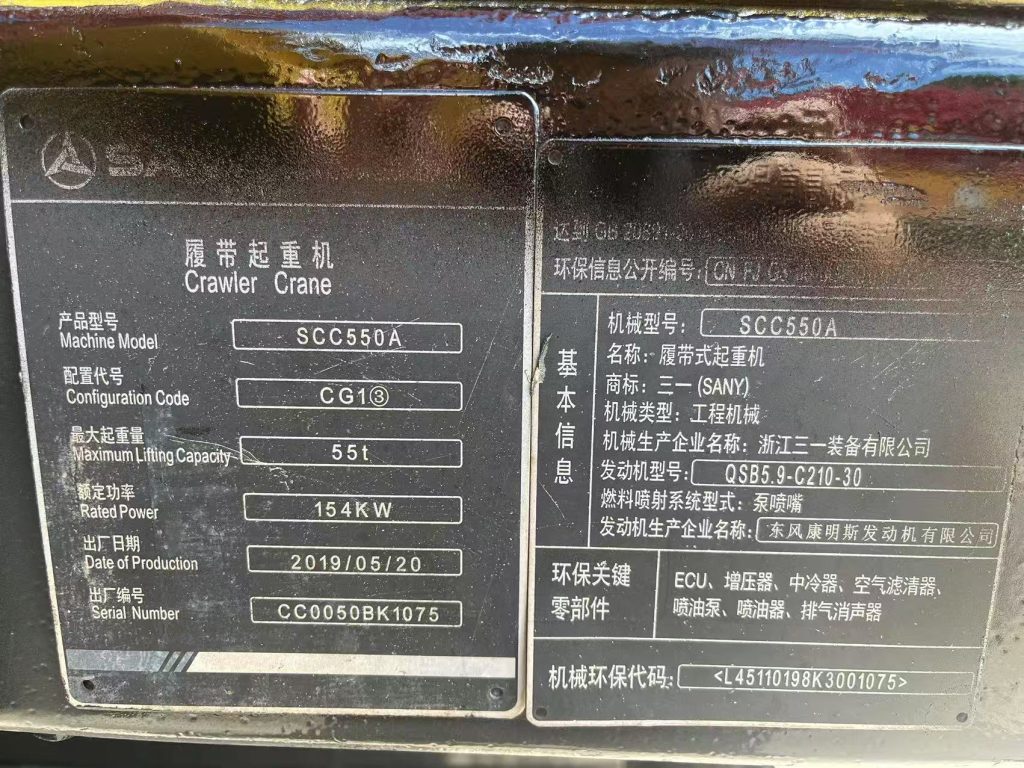
Why This Regulation is a Positive Development
Historically, China’s used construction machinery export market has been plagued by problems—false year of manufacture, tampered working hours, and even fake brand markings. By making it mandatory to declare unique identifiers for each machine, China Customs used construction equipment export inspections are help restore some trust to the industry.
It’s also a step toward holding exporters accountable. In the past, unscrupulous sellers could pass off lower-quality equipment without fear of detection. Now, mismatches between the machine and its declared information can result in fines, shipment rejection, or even legal action.
Compliance is the New Competitive Edge
For overseas buyers, understanding China Customs used construction equipment policies is not just about compliance—it’s about protecting your investment. By working with experienced exporters and ensuring complete, accurate documentation, you can avoid costly delays, fines, or equipment returns.
In a market where trust is often in short supply, aligning with the stricter customs requirements can actually give you an advantage, ensuring that what you order is exactly what you receive.

